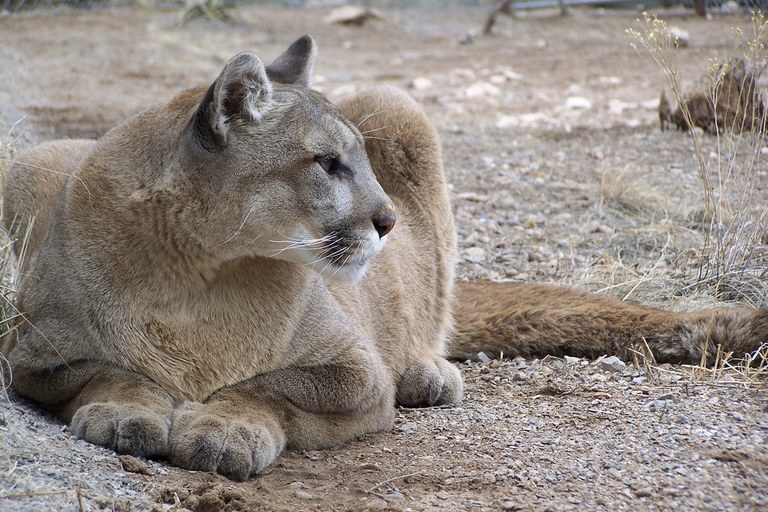How to Hike Safely in Cougar Country
Although unlikely, cougar encounters are a possibility when hiking in Washington. Cougars, also known as mountain lions, are a native species that live throughout the state and play an important role in maintaining healthy ecosystems.
Before heading on your hike, check the Washington Department of Fish and Wildlife's Wildlife Incident Map to see if any cougars have been sighted near where you're going, and submit an incident yourself if you encounter one on your hike.
In order to stay safe in cougar country, you should know how to identify nearby cougar activity and be prepared for an encounter.
identifying cougars
- Cougars are a reclusive species that prefer not to be seen.
- Cougar droppings can be difficult to identify; they may resemble dog droppings
- Large dead animals can be a good indicator of nearby cougar activity. After killing their prey, cougars will often drag the animal to a secluded site and continue to guard and eat it for six to eight days. To protect it from other animals, cougars cover with snow, loose dirt, dry leaves or fir needles. This is called a food cache; if you see something similar to the above description, don't approach it.
- Like many other cats, cougars leave scent markings by clawing the ground or a tree.
- Cougar kittens have brownish-black spots that fade as the grow. When they are small, they can resemble domestic kittens. Young cougars stay with their mothers until they're 18-24 months old. If you see kittens or cubs, the mother is probably nearby. They may be cute, but don't approach the cubs.

A cougar spotted along the Pacific Crest Trail. Photo by April McQuerry.
Hiking near Cougars
The main tactic is to make noise, stay in groups and on trail, and be aware of your surroundings. Your goal is to avoid surprise encounters.
- Keep small children close, and keep hiking dogs on leash and on trail.
- Avoid hiking at night.
- Watch for signs of cougar activity and be aware of your surroundings.
- Reduce odors and keep a clean camp.
- Swift movement like mountain biking and trail running may trigger a cougar's hunting instincts.
What to do when you encounter a cougar
It is rare to encounter a cougar on trail, but if you do, there are several tactics you can use to help keep you safe. Attacks are extremely rare, but if a cougar attacks, fight back with rocks, poles or sticks. Protect your neck and head.
- Do not run from the cougar and do not approach it.
- Do not sit, crouch or turn your back on the cougar. Face the cougar and make yourself appear large, signaling to the cougar that you are not prey. Wave your arms and trekking poles, make loud noises or open your coat to make yourself appear larger.
- Leave an escape route. Avoid cornering or trapping a cougar.
- If the cougar becomes aggressive, throw your backpack, water bottle or anything you have at it. Be loud.
Living near Cougars
- Keep outdoor areas well-lit while in use, and avoid leaving small children unattended.
- Never feed wildlife or leave food out (including food for domestic pets).
- Take trash out the morning of garbage day, instead of the night before.
- Keep domestic animals, including livestock, in a secure enclosure like a barn of covered pen from dusk to dawn.
What cougars eat
- Cougars are carnivores that prey on elk, deer and mountain goats. Younger cougars may also prey on rodents, coyotes, rabbits or raccoons.
- According to the Washington Department of Fish and Wildlife, a large male cougar living in the Cascade Mountains kills a deer or elk every 9 to 12 days, eating up to 20 pounds at a time and burying the rest for later.
- Cougars typically hunt alone and are most active during twilight.
For more details on how to hike safely in cougar country, visit the Washington Department of Fish & Wildlife.

